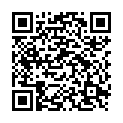|
|
|
| Module code: E414 |
|
4V (4 hours per week) |
|
5 |
| Semester: 4 |
| Mandatory course: yes |
Language of instruction:
German |
Assessment:
Written exam after 4th semester
[updated 11.03.2010]
|
E414 Electrical Engineering, Bachelor, ASPO 01.10.2005
, semester 4, mandatory course
|
60 class hours (= 45 clock hours) over a 15-week period.
The total student study time is 150 hours (equivalent to 5 ECTS credits).
There are therefore 105 hours available for class preparation and follow-up work and exam preparation.
|
Recommended prerequisites (modules):
None.
|
Recommended as prerequisite for:
|
Module coordinator:
Prof. Dr. Benedikt Faupel |
Lecturer:
Prof. Dr. Benedikt Faupel
Dipl.-Ing. Manfred Michel
[updated 11.03.2010]
|
Learning outcomes:
These lectures are designed for students who are not taking the specialist areas Automation Engineering or Power Engineering. The content of the lectures is drawn from the fundamentals taught in the modules Systems Theory and Industrial Control Technology. The aim of this module is to convey the basic concepts and methods used to develop applications and solve problems in the field of automation engineering. The basic principles and skills acquired by students in this module will enable to learn them in their later careers those specific aspects of automation engineering that are of direct relevance to their professional work.
[updated 11.03.2010]
|
Module content:
See module descriptions for the modules:
Systems theory: Module E408
Industrial Control Technology: Module E403
[updated 11.03.2010]
|
Teaching methods/Media:
Overhead transparencies, PC, video projector
[updated 11.03.2010]
|
Recommended or required reading:
Unbehauen, H.: Regelungstechnik I; 11. Auflage; Vieweg Verlag, Braunschweig; 2001
Lutz, H.; Wendt, W.: Taschenbuch der Regelungstechnik; 3. Auflage; Verlag Harri Deutsch, Frankfurt/Main 2000
Föllinger, O.: Regelungstechnik; 8. Auflage; Hüthig Verlag, Heidelberg 1994
Föllinger, O.: Laplace- und Fourier-Transformation. Hüthig Verlag, Heidelberg, 1986
L. Merz; H. Jaschek: Grundkurs der Regelungstechnik, Oldenbourg Verlag, München, 1985
H. Jaschek; W. Schwimm: Übungsaufgaben zum Grundkurs der Regelungstechnik, Oldenbourg Verlag, München 1993
Walter, H.: Kompaktkurs Regelungstechnik. Vieweg Verlag, Braunschweig 2001
Tröster, Fritz: Steuerungs- und Regelungstechnik für Ingenieure. Oldenbourg Verlag, München 2001
Siemens: S7 training documents (www.siemens.de/sce)
Wellenreuther, Zastrow: Automatisieren mit SPS. Vieweg-Verlag, Wiesbaden
Wellenreuther, Zastrow: Automatisierungsaufgaben mit SPS, Vieweg-Verlag, Wiesbaden
[updated 11.03.2010]
|


